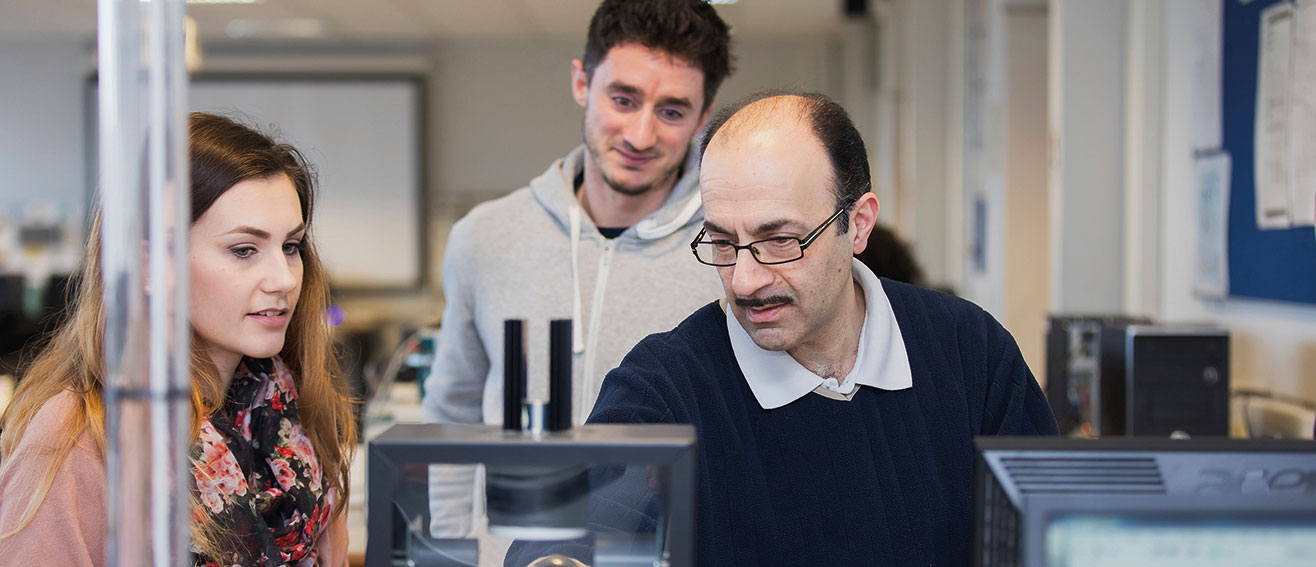
Physics Based Digital Technology Hands-on Programme
Bring new ideas to life, here and now, with our innovative, future-facing approachPhysics Based Digital Technology Hands-on Programme
Introduction
We are delighted to announce the starting of our exciting project, Physics Based Digital Technology Hands-on Programme, here in the School of Engineering, London South Bank University (www.lsbu.ac.uk). This is a three year programme funded by the Institute of Physics (IOP) Challenge Fund (https://www.iop.org/strategy/challenge-fund). The aim of this project is to promote physics and digital technologies among secondary school students. In this project, we will run a series of short, hands-on tasting programme will be targeted for 14-16 years old, with a priority for people from disadvantaged background, including but not limited to, people from Black, Asian and Minority Ethnic (BAME) background, and girls. It will be initially 2-day long, and later 5-day long. It will provide an inside view of physics used in the modern world and practical digital skills needed for their future career. Through engaging with the schools, young people and the general public, we aim to play our part in solving the STEM skills shortage, to stimulate interests in studying Physics among young people and to demonstrate the impact of Physics on people’s lives.
Events
In this project we are going to run a number of events, including school visits, online seminars, and in-person hands-on workshops based at London South Bank University. Click the following link for all the events:
Physics and Digital Technology Resources
We are living in the era of the 4th Industry Revolution, also known as Industry 4.0, where technology drives the economy. Physics is right at the heart of the technology. Many companies are keen to adopt digital technologies to increase their competitiveness and reducing cost, which drives up the demand for highly skilled work force. At the other hand, the number of young people taking Physics, as well as other science, technology and math subjects, is stagnant. Through this project, we aim to stimulate the interests in Physics among young people, to provide a better understand of the importance of physics in economy and in their own future. practical digital skills, such as python programming, electronics, that will be beneficial for their future employment.
The following are list of useful resources if you are interested to learn more about physics and digital technologies.
Institute of Physics (Education) - to promote, develop and support excellent physics teaching through networks, CPD events and proven resources.
A Level Physics - Revision guides, past papers, tutors and more.
- https://www.physicsandmathstutor.com/
- https://studywise.co.uk/a-level-revision/physics/
- https://www.alevelphysicsonline.com/
- https://www.physicstutoronline.co.uk/alevelphysics/
- https://tutorhouse.co.uk/blog/top-a-level-and-gcse-physics-resources
- https://www.aqa.org.uk/subjects/science/as-and-a-level/physics-7407-7408/teaching-resources
Practical A Level Physics - These resources are being developed to help those teaching A Level physics with the practical elements of the course.
Google Colab - is a free, web based platform which allows you to learn Python, machine learning and artificial intelligence.
Real Python - Learn Python online: Python tutorials for developers of all skill levels, Python books and courses, Python news, code examples, articles, and more.
Arduino - Open-source electronic prototyping platform enabling users to create interactive electronic objects.
Raspberry Pi - is a tiny and affordable computer that you can use to learn programming through fun, practical projects.
Tinkercad - is a free, easy-to-use web app that equips the next generation of designers and engineers with the foundational skills for innovation: 3D design, electronics, and coding!
MIT App Inventor - is a web application integrated development environment originally provided by Google, and now maintained by the Massachusetts Institute of Technology (MIT). It allows newcomers to computer programming to create application software(apps) for two operating systems (OS): Android, and iOS.
Contact
If you have any questions, suggestions, comments, please contact:
Professor Perry Xiao
Email: Perry.xiao@lsbu.ac.uk
Mobile: 07950041476
Copyright © 2022 London South Bank University
In this section
- Study
- Research
- Business and enterprise
- About the School
- Physics Based Digital Technology Hands-on Programme
- Our Staff